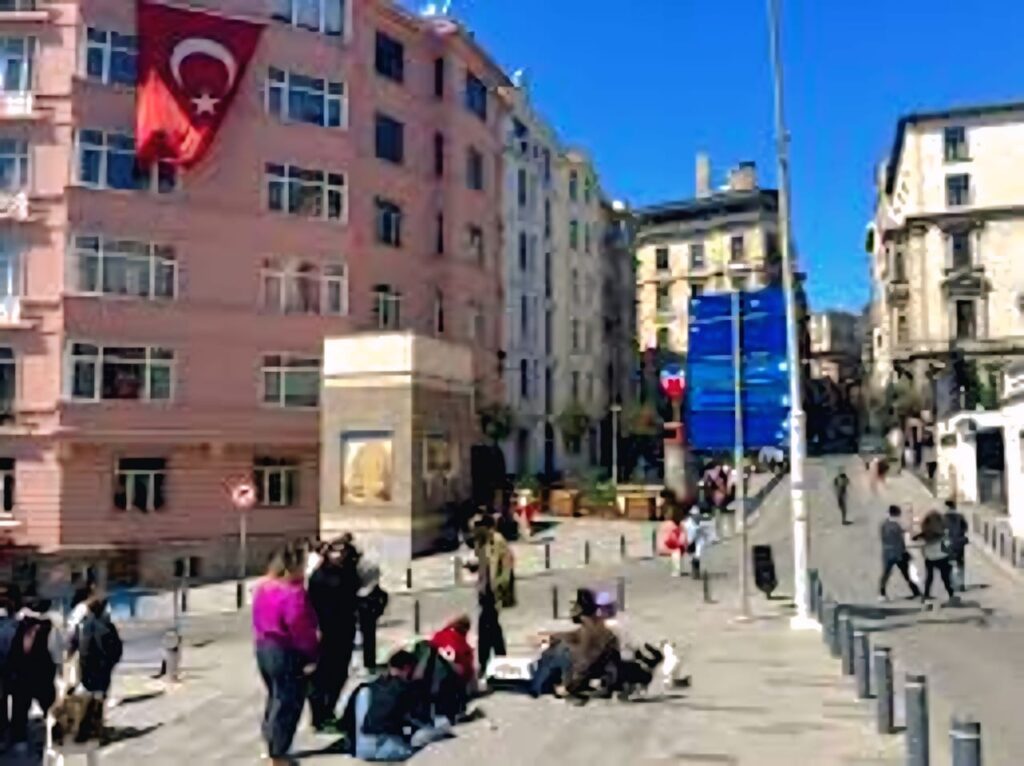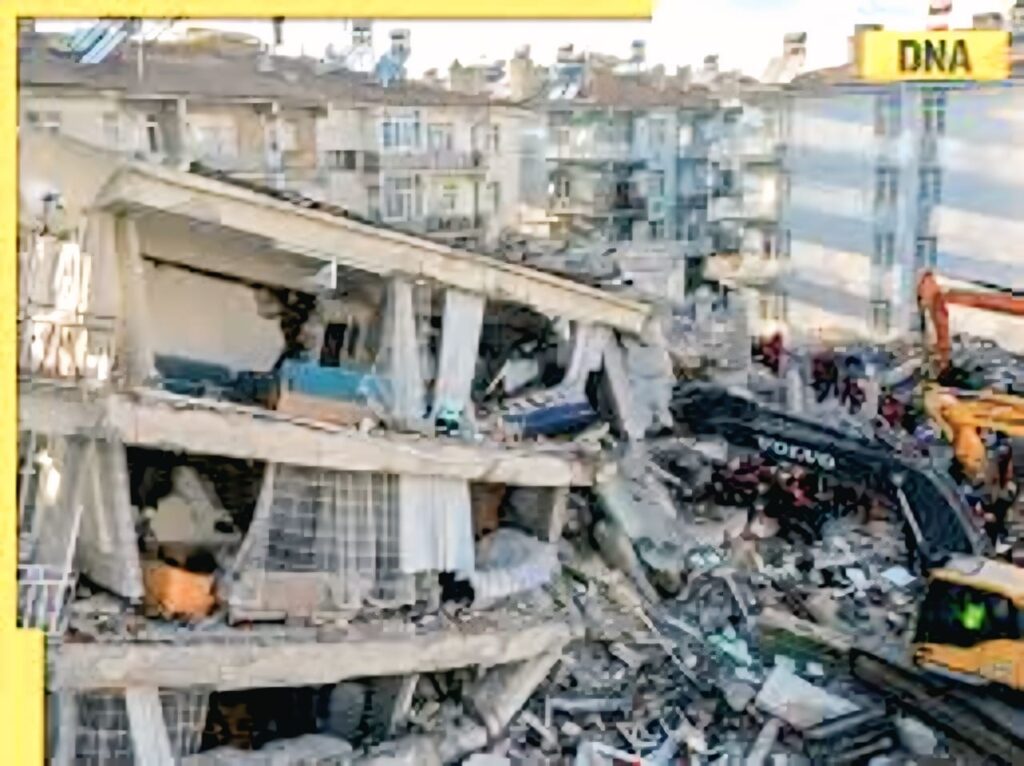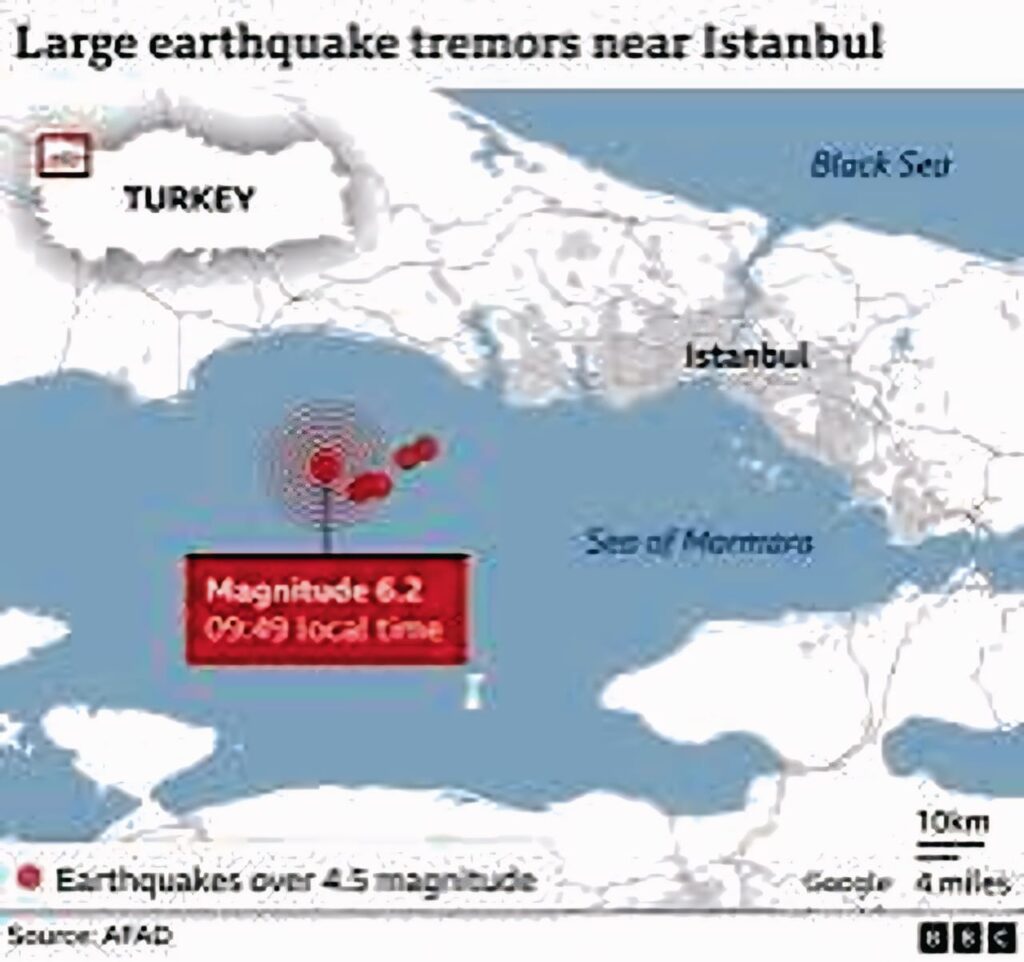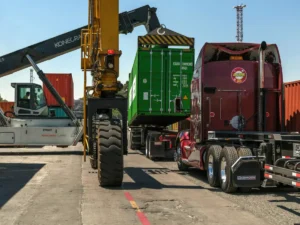On April 23, 2025, Istanbul experienced a significant seismic event that shook the city and its surroundings. A 6.2 magnitude earthquake struck the Sea of Marmara, approximately 40 kilometers southwest of Istanbul, at 12:49 PM local time. The tremors were felt across the city, causing panic among residents and highlighting the urgent need for earthquake preparedness
The Quake’s Immediate Impact
The earthquake’s epicenter was located in the Sea of Marmara, a region known for its seismic activity due to the presence of the North Anatolian Fault. The shallow depth of the quake, around 10 kilometers, contributed to its intensity on the surface. Buildings swayed, and people rushed into the streets seeking safety. While there were no immediate reports of fatalities, over 150 individuals sustained injuries, primarily due to panic-induced accidents such as falls or jumping from buildings.

Infrastructure and Structural Concerns
Istanbul’s infrastructure faced a stern test during the quake. An abandoned three-story building in the Fatih district collapsed, and several other structures reported minor damages. The city’s aging buildings, especially those not retrofitted to withstand seismic activity, remain a significant concern. Experts estimate that a substantial earthquake could render at least 20% of Istanbul’s buildings unusable, with approximately 48,000 structures facing severe damage.
The North Anatolian Fault: A Persistent Threat

The North Anatolian Fault (NAF) is a major strike-slip fault line extending across northern Turkey, including near Istanbul. Historically, the NAF has been responsible for several devastating earthquakes. Seismologists warn that the probability of a significant earthquake occurring along this fault line near Istanbul is high, with some estimates suggesting a 70% chance of a magnitude 7.0 or higher quake before 2030.
Government Response and Preparedness Initiatives
The Economic ImplicationsIn the aftermath of the quake, Turkish authorities emphasized the importance of preparedness and resilience. The Disaster and Emergency Management Authority (AFAD) urged residents to stay away from damaged buildings and remain vigilant for aftershocks. The government has been investing in urban transformation projects aimed at reinforcing and renovating vulnerable structures. As of 2025, approximately 907,000 units in Istanbul have undergone transformation to enhance their earthquake resistance.
Community Awareness and Education

In the aftermath of the quake, Turkish authorities emphasized the importance of preparedness and resilience. The Disaster and Emergency Management Authority (AFAD) urged residents to stay away from damaged buildings and remain vigilant for aftershocks. The government has been investing in urban transformation projects aimed at reinforcing and renovating vulnerable structures. As of 2025, approximately 907,000 units in Istanbul have undergone transformation to enhance their earthquake resistance.
The Economic Implications
Beyond the immediate physical damage, earthquakes pose substantial economic risks. A significant seismic event in Istanbul could result in an estimated economic loss of approximately $17 billion, considering the potential damage to infrastructure, businesses, and homes. Such an event would not only impact the local economy but also have broader implications for Turkey’s national economic stability.
Conclusion
The April 23, 2025, earthquake serves as a stark reminder of Istanbul’s vulnerability to seismic activity. While the city was fortunate to avoid catastrophic damage this time, the event underscores the necessity for continued investment in infrastructure resilience, public education, and emergency preparedness. By taking proactive measures now, Istanbul can better safeguard its residents and heritage against future seismic threats.
Share this:
- Click to share on Facebook (Opens in new window) Facebook
- Click to share on X (Opens in new window) X
- Click to email a link to a friend (Opens in new window) Email
- Click to share on Telegram (Opens in new window) Telegram
- Click to share on Threads (Opens in new window) Threads
- Click to share on WhatsApp (Opens in new window) WhatsApp








